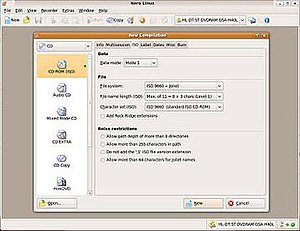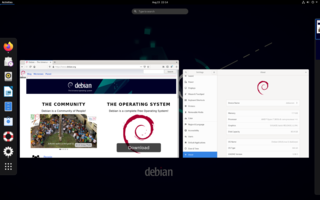
Debian, also known as Debian GNU/Linux, is a GNU/Linux distribution composed of free and open-source software, developed by the community-supported Debian Project, which was established by Ian Murdock on August 16, 1993. The first version of Debian (0.01) was released on September 15, 1993, and its first stable version (1.1) was released on June 17, 1996. The Debian Stable branch is the most popular edition for personal computers and servers. Debian is also the basis for many other distributions, most notably Ubuntu.
The Single UNIX Specification (SUS) is the collective name of a family of standards for computer operating systems, compliance with which is required to qualify for using the "UNIX" trademark. The core specifications of the SUS are developed and maintained by the Austin Group, which is a joint working group of IEEE, ISO JTC 1 SC22 and The Open Group. If an operating system is submitted to The Open Group for certification, and passes conformance tests, then it is deemed to be compliant with a UNIX standard such as UNIX 98 or UNIX 03.

StarOffice was a proprietary office suite. It originated in 1985 as StarWriter by Star Division, which was acquired by Sun Microsystems in 1999. Sun Microsystems, in turn, was acquired by Oracle Corporation in 2010. It was known briefly as Oracle Open Office before being discontinued in 2011.

KNOPPIX is an operating system based on Debian designed to be run directly from a CD / DVD or a USB flash drive, one of the first of its kind for any operating system. Knoppix was developed by, and named after, Linux consultant Klaus Knopper. When starting a program, it is loaded from the removable medium and decompressed into a RAM drive. The decompression is transparent and on-the-fly.

The Linux Standard Base (LSB) was a joint project by several Linux distributions under the organizational structure of the Linux Foundation to standardize the software system structure, including the Filesystem Hierarchy Standard used in the Linux kernel. LSB was based on the POSIX specification, the Single UNIX Specification (SUS), and several other open standards, but extended them in certain areas.
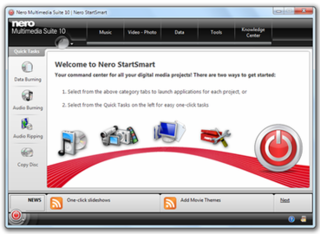
Nero Multimedia Suite is a software suite for Microsoft Windows that is developed and marketed by Nero AG. Version 2017 of this product was released in October 2016.
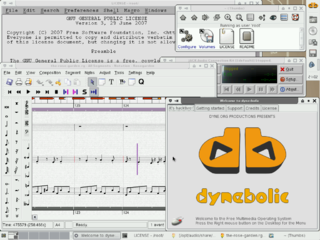
dyne:bolic GNU/Linux is a Live CD/DVD distribution based on the Linux kernel. It is shaped by the needs of media activists, artists and creators to be a practical tool with a focus on multimedia production, that delivers a large assortment of applications. It allows manipulation and broadcast of both sound and video with tools to record, edit, encode, and stream. In addition to multimedia specific programs, dyne:bolic also provides word processors and common desktop computing tools.

ALT Linux is a set of Russian operating systems based on RPM Package Manager (RPM) and built on a Linux kernel and Sisyphus package repository. ALT Linux has been developed collectively by ALT Linux Team developers community and ALT Linux Ltd.

Puppy Linux is an operating system and family of light-weight Linux distributions that focus on ease of use and minimal memory footprint. The entire system can be run from random-access memory (RAM) with current versions generally taking up about 600 MB (64-bit), 300 MB (32-bit), allowing the boot medium to be removed after the operating system has started. Applications such as AbiWord, Gnumeric and MPlayer are included, along with a choice of lightweight web browsers and a utility for downloading other packages. The distribution was originally developed by Barry Kauler and other members of the community, until Kauler retired in 2013. The tool Woof can build a Puppy Linux distribution from the binary packages of other Linux distributions.
InCD is a packet writing software developed by Nero AG for Microsoft Windows.
Nero AG is a German computer software company that is especially well known for its CD/DVD/BD burning suite, Nero Burning ROM, and is currently the global market leader for this recording software. The company's main product is Nero 2019, a piece of software that comprises burning, file conversion, media management, and video editing functions and is updated on an annual basis.
Blackdown Java was a Linux port of Sun Microsystems's Java virtual machine, developed by a group of volunteers led by Juergen Kreileder, Steve Byrne, and Karl Asha, and included a team of volunteers from around the globe. The first version, 1.0.2, was released in October 1996, predating Sun's official Linux port.
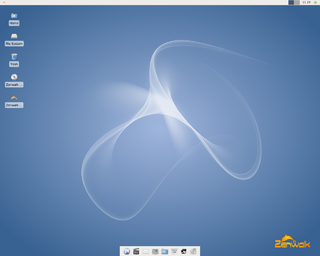
Zenwalk is a Desktop focused Linux distribution founded by Jean-Philippe Guillemin. It is based on Slackware with very few modifications at system level making it 100% compatible with it. Zenwalk aims to be a modern and multi-purpose Linux distribution by focusing on Internet applications, multimedia and programming tools. Additionally, Zenwalk comes with many specialized tools, designed for beginner through advanced users as it offers system configuration via both graphical and command-line operations.
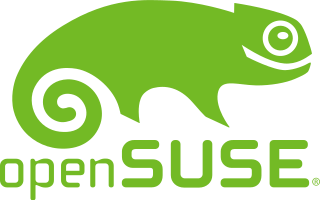
openSUSE is a project that serves to promote the use of free and open-source software.
AVCHD is a file-based format for the digital recording and playback of high-definition video. It is H.264 and Dolby AC-3 packaged into the MPEG transport stream, with a set of constraints designed around the camcorders.

gNewSense is a Linux distribution that was active from 2006 to 2016. It was based on Debian, and developed with sponsorship from the Free Software Foundation. Its goal was user-friendliness, but with all proprietary and non-free software removed. The Free Software Foundation considered gNewSense to be composed entirely of free software.

GNU IceCat, formerly known as GNU IceWeasel, is a completely free and open-source version of the Mozilla Firefox web browser distributed by the GNU Project. It is compatible with Linux, Windows, Android and macOS.
IcedTea is a build and integration project for OpenJDK launched by Red Hat in June 2007. IcedTea also includes some addon libraries: IcedTea-Web is a free software implementation of Java Web Start and the Java web browser applet plugin. IcedTea-Sound is a collection of plugins for the Java sound subsystem, including the PulseAudio provider which used to be included with IcedTea. The Free Software Foundation recommends that all Java programmers use IcedTea as their development environment.

Phoronix Test Suite (PTS) is a free and open-source benchmark software for Linux and other operating systems which is developed by Michael Larabel and Matthew Tippett. The Phoronix Test Suite has been endorsed by sites such as Linux.com, LinuxPlanet, and Softpedia.
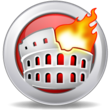
Nero Burning ROM, commonly called Nero, is an optical disc authoring program from Nero AG. The software is part of the Nero Multimedia Suite but is also available as a stand-alone product. It is used for burning and copying optical discs such as CDs, DVDs, Blu-rays. The program also supports label printing technologies LightScribe and LabelFlash and can be used to convert audio files into other audio formats.
